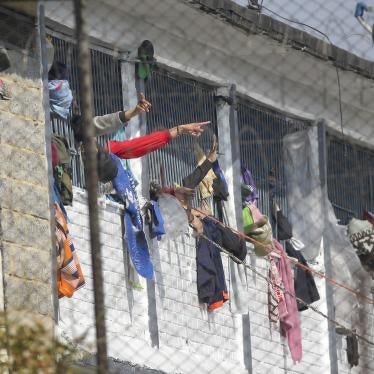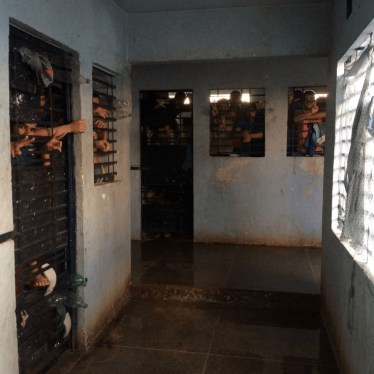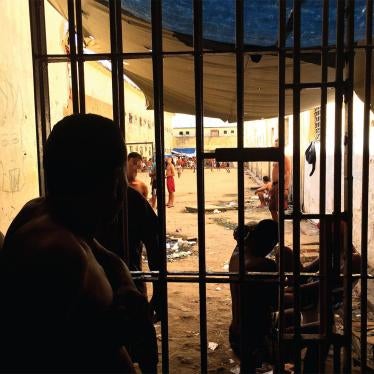Whenever a criminal appeal lands on Judge Kenarik Boujikian´s desk in her São Paulo office, she always checks a basic fact: whether the case involves a detainee who has already finished their sentence but is still incarcerated. In the last year, she has ordered the release of about 50 people who were behind bars even though they had already served their time, she told me. Their continued incarceration was illegal, arbitrary and a violation of the detainees’ fundamental human rights.
And yet, instead of receiving applause, Boujikian faces a disciplinary procedure that can end with a sanction that ranges from a warning to a disgraced finish to her career in the form of compulsory retirement. Twenty-five fellow judges will decide her fate today.
Last August, another judge filed a complaint against Boujikian contending that she had violated the court´s rules by issuing release orders on her own in 10 cases. There is no dispute that the 10 detainees had already completed their sentences, but the complaint says that she should instead have left the matters to the three-judge panel that was supposed to decide the appeals at issue in those cases.
Given the slow pace of Brazil’s judicial system, this would have meant leaving the detainees incarcerated for an indefinite period even though there was no possible legal basis for denying them their freedom. The judge who at the time headed the office of judicial complaints in São Paulo examined the complaint and allowed it to move forward.
The question of whether Sao Paulo´s court´s procedural rules were violated or not is at best a distraction from the real issue. The complaint may reflect the widely held belief among some judges, police officers and prosecutors that mass imprisonment is the solution to Brazil´s very serious crime problem.
That attitude has contributed to the crisis in Brazil’s prisons, which hold 61 percent more people that they were built for in unsanitary and violent conditions that are fertile ground for gang recruitment.
Boujikian takes the position that she not only can, but has an obligation under the law to issue release orders as soon as she verifies that a detainee has already completed their sentence and that their continued incarceration is therefore illegal. Brazil´s Constitution says that the state must pay damages “to a person who remains imprisoned for a period longer than the one established by the sentence.” And under Brazil’s international human rights obligations any victim of unlawful detention – who these detainees clearly are – has a right to enforceable compensation.
In 3 of the 10 cases in question prosecutors had filed appeals seeking longer prison terms. But those three prisoners had already served their sentences, and it would be illegal to require that them to wait around in prison until the appeals are decided.
Even worse, in the other seven cases the appeals were filed by the detainees themselves, challenging their sentences, and therefore, under Brazilian law, there was no chance they would have to serve more time. By the time the appeals reached the court, the detainees had already served the sentences, a sign of the delays that often occur in Brazil´s judicial system.
From 2008 to 2014, the National Justice Council, which administers the justice system, found at least 48,000 cases of people still incarcerated after they had completed their sentences. For instance, J.P. should have been released in 2004 from a prison in Pernambuco but, without a lawyer or family members to advocate for him, spent an additional decade behind bars. He gained release after a public defender filed a habeas corpus petition, the defender told me.
It is not at all clear that Boujikian actually violated court rules by unilaterally ordering the release of detainees; a legal opinion from Maurício Zenoide de Moraes, a law professor at Universidade de São Paulo, requested by her lawyers, concluded that she did not. But even if there were a procedural breach, it would be unacceptable that people who have already served their sentence must wait behind bars until the three-judge panel finds time to examine their cases.
Boujikian believes that just the fact that a disciplinary proceeding was opened against her sent the message to all judges in the state of São Paulo that they should think twice before releasing detainees, even those illegally imprisoned. That attitude by judges would place a premium on punishment rather than upholding the rule of law and would be the antithesis of what Brazil needs if it is to finally tackle the maladies in its prisons.








